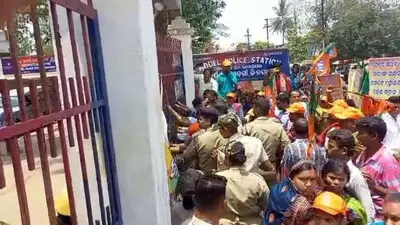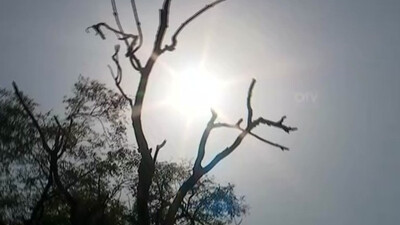Kathmandu: Over 50 per cent electorate voted by noon today in Nepal to elect the Constituent Assembly that will write the political fortune of the country, even as the polls were hit by threats and violence, including a bomb explosion that injured three children.
According to the Election Commission more than 50 per cent polling was reported on an average across Nepal till 1 pm (local time) despite Maoist threats and the blast near a polling booth in the capital.
In Kathmandu, more than 65 per cent voting was reported till 2 pm (local time) and more voters were expected to cast their ballot before the voting closes at 5 pm, the Commission said.
The Maoists have called for a boycott of the Constituent Assembly elections and launched violent protests to disrupt the polls. The CPN-Maoist, led by Mohan Vaidya, has called a nine-day nationwide transport strike that is effective till today.
Though, in most places the poll process was conducted peacefully, instances of booth capturing and violence were reported from certain areas.
The blast occurred in Bhotebahal area of the capital when a child while playing football near an election booth recovered an object and it exploded as soon as he touched it.
The police suspect the involvement of CPN-Maoist cadres in the blast.
Two sisters, aged 5 and 8 and a 7-year-old boy were injured in the blast, Nepal Police spokesman Ganesh Khatrchhetri said.
The Unified CPN-Maoist cadres captured polling booths in Ghelung and Ghayalchok villages of the Gorkha district, from where Maoist Vice Chairman Baburam Bhattarai is contesting the polls.
Kiran Babu Shrestha of the Nepali Congress is challenging former Prime Minister Bhattarai in the constituency.
Polls were also disrupted for some time after clashes erupted between two political parties in Jumla and Dailekh districts of western Nepal, the Election Commission said.
About 12,147,865 voters are voting in 18,457 polling centres in 240 constituencies.
Nepal will choose a 601-member assembly to draft a new Constitution. The assembly would include 240 elected under a direct voting system. There will be proportionate voting for 335 seats and the remaining 26 members will be nominated by the government.












